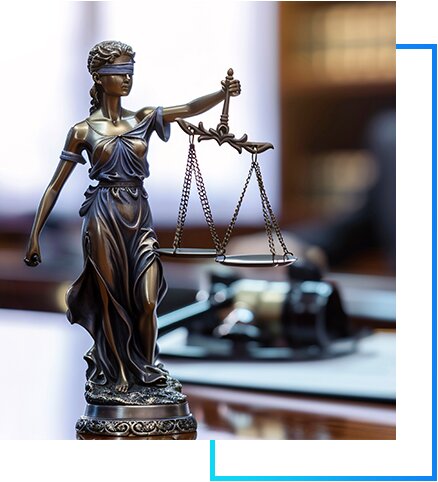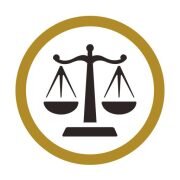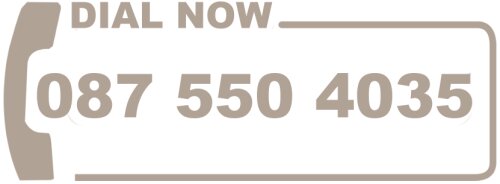Best Brain Injury Lawyers in Durban
Share your needs with us, get contacted by law firms.
Free. Takes 2 min.
List of the best lawyers in Durban, South Africa
About Brain Injury Law in Durban, South Africa
Brain injuries, whether caused by accidents, medical negligence, or other incidents, can have profound and lasting effects on the individuals affected and their families. In Durban, South Africa, individuals dealing with brain injuries may find themselves navigating a range of legal challenges. The legal landscape for brain injury cases in Durban involves aspects of personal injury law, which aims to ensure those affected receive appropriate compensation and care. Seeking legal counsel can be crucial in understanding one's rights and pursuing a fair resolution.
Why You May Need a Lawyer
Experiencing a brain injury can be life-altering, and several scenarios might necessitate the need for legal assistance:
Personal Injury Claims: If the injury was due to someone's negligence, you might be entitled to compensation for medical expenses, lost wages, and pain and suffering.
Insurance Disputes: Insurance companies may contest the extent of coverage or the compensation amount, requiring legal support to advocate on your behalf.
Workplace Injuries: If the injury occurred at the workplace, navigating workers' compensation laws and securing just benefits might require legal expertise.
Medical Negligence: Legal assistance may be necessary when the injury results from medical malpractice, requiring thorough investigation and representation.
A lawyer can provide guidance, advocate for rights, and aid in obtaining compensation to support necessary medical and rehabilitative care.
Local Laws Overview
Brain injury cases in Durban may involve several legal frameworks and statutes:
Personal Injury Law: Under South African Law, individuals have the right to claim damages if their injury was caused by another's negligence. The legal process involves proving liability, which requires experienced legal counsel.
Road Accident Fund (RAF): If the injury stems from a traffic accident, the individual may claim compensation from the RAF, a public entity providing cover for injuries sustained from road accidents.
Workers' Compensation: Injuries sustained in the workplace are covered under the Compensation for Occupational Injuries and Diseases Act (COIDA), which compensates for medical expenses and loss of income.
Understanding these intricacies is essential for navigating claims effectively and ensuring rightful compensation.
Frequently Asked Questions
What constitutes a brain injury in legal terms?
A brain injury refers to any trauma-induced damage affecting an individual's brain function. Legally, the severity and implications of the injury often influence the case outcome and compensation.
Can I claim compensation if I was partly at fault for the accident?
Yes, South Africa follows a contributory negligence system where compensation can be awarded proportional to the level of fault attributed to each party involved.
How is compensation calculated for brain injury cases?
Compensation considers medical expenses, rehabilitation costs, lost earnings, and non-economic factors like pain and suffering. Expert legal advice is crucial to accurately estimate and justify claims.
How long do I have to file a brain injury claim?
The limit to file a claim varies based on the type of injury and responsible party. For general negligence, it's typically three years from the injury date; however, circumstances like minors affected can alter timelines.
What should I do immediately after a brain injury occurs?
Prompt medical attention is crucial, followed by securing legal advice to understand options for documentation and claims.
Are brain injury lawyers’ services covered by legal aid?
Legal aid coverage depends on individual cases and financial means. Consultation with a legal aid office or lawyer can clarify eligibility.
Can I handle a brain injury claim myself?
While possible, self-representation is challenging given the complexity of medical and legal issues in brain injury cases. Legal guidance is advisable for optimal results.
What evidence is needed for a brain injury claim?
Evidence includes medical records, expert assessments, accident reports, and witness testimonies. Legal professionals help in gathering and presenting necessary documentation.
Can I sue for emotional distress after a brain injury?
Yes, compensation claims can include damages for emotional distress and psychological impact resulting from a brain injury.
What role do medical experts play in brain injury cases?
Medical experts provide crucial insights into the nature and impact of the injury, assisting in the assessment of compensation claims and liability.
Additional Resources
For those seeking further support or information, here are some resources:
South African Brain Injury Rehabilitation Trust (SABIRT): Offers support and resources for brain injury victims and their families.
Road Accident Fund (RAF): Provides information regarding claims for road accident victims.
Law Society of South Africa (LSSA): Offers directories to find experienced brain injury lawyers.
Durban Legal Aid Office: Can offer counsel on eligibility for legal aid and provide support.
Next Steps
For those in need of legal assistance regarding brain injury, consider the following steps:
Initial Consultation: Seek a consultation with a specialized brain injury lawyer to assess your case and determine appropriate legal actions.
Document Preservation: Gather and preserve all relevant medical records, incident reports, and correspondence related to the injury.
Contact Experts: Engage medical and legal experts for evaluating the severity of the injury and the potential impact on your life.
Legal Representation: Consider securing representation to ensure proper navigation through legal complexities and to maximize compensation outcomes.
Taking these steps ensures that individuals affected by brain injuries are adequately informed and supported through legal processes.
Lawzana helps you find the best lawyers and law firms in Durban through a curated and pre-screened list of qualified legal professionals. Our platform offers rankings and detailed profiles of attorneys and law firms, allowing you to compare based on practice areas, including Brain Injury, experience, and client feedback.
Each profile includes a description of the firm's areas of practice, client reviews, team members and partners, year of establishment, spoken languages, office locations, contact information, social media presence, and any published articles or resources. Most firms on our platform speak English and are experienced in both local and international legal matters.
Get a quote from top-rated law firms in Durban, South Africa — quickly, securely, and without unnecessary hassle.
Disclaimer:
The information provided on this page is for general informational purposes only and does not constitute legal advice. While we strive to ensure the accuracy and relevance of the content, legal information may change over time, and interpretations of the law can vary. You should always consult with a qualified legal professional for advice specific to your situation.
We disclaim all liability for actions taken or not taken based on the content of this page. If you believe any information is incorrect or outdated, please contact us, and we will review and update it where appropriate.

















